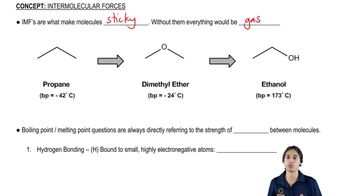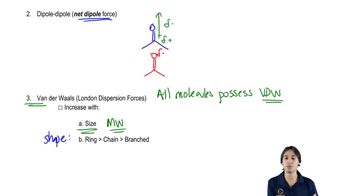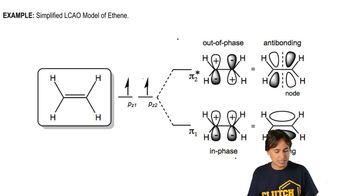Which of the following compounds forms hydrogen bonds between its molecules?
1. CH3CH2OCH2CH2OH
2. CH3CH2N(CH3)2
3. CH3CH2CH2CH2Br
 Verified step by step guidance
Verified step by step guidance Verified video answer for a similar problem:
Verified video answer for a similar problem:



 3:08m
3:08mMaster How IMFs are related to melting and boiling points. with a bite sized video explanation from Johnny
Start learning